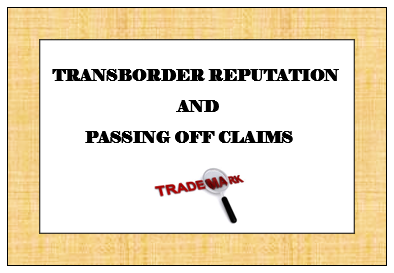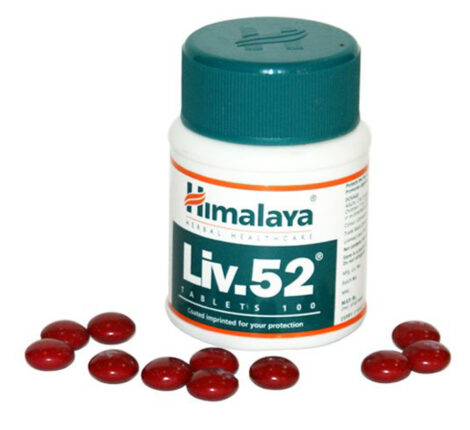Transborder reputation and passing off claims in trademarks
INTRODUCTION
Globalization has helped open up trade channels, foreign investments, and access to new forms of market. But there are some known perils, the most prominent is the selling of duplicated and counterfeit goods.
This article will provide the legal concept of passing off and the principle of transborder reputation, along with passing off claims, especially for a not registered trademark. We will also discuss the legal framework of these concepts in India.
TRANSBORDER REPUTATION
Reputation usually means the intangible value and credibility that a good or service has associated with itself over time. Reputation is the foundation behind any brand and is indeed a significant selling point for most famous brands. As trademarks are territorial, their rights are only protected in countries or regions where they are registered. Hence, several brands/companies that file passing off claims of their goods or services must prove a trans-border reputation in the particular territory.
PASSING OFF IN TRADEMARK
The three elements to be kept in mind the three elements that need to be considered while instituting a suit of a classical trinity of passing off are goodwill and reputation, consumer confusion, losses suffered. In simple words, passing off refers to a legal remedy that prohibits an enterprise or individual from misrepresenting the goods or services of any brand as their own. In trademark, passing off helps enterprises. Even without registered trademarks, one can claim damages if someone else uses their marks or any similar mark, harming their goodwill and reputation in the market.
SCOPE OF LEGAL FRAMEWORK
The Trade-Related Aspects of the Intellectual Property Rights, 1995 (TRIPS), has established new guidelines and principles for protecting intellectual property rights globally.
- Article 1(1) allows the members to increase the scope or implementation of laws within their domestic territory.
- Article 16(2) of the TRIPS states that Article 6bis of the Paris Convention 1967 shall apply mutas mutandis, to services. Earlier, this provision was limited to only goods. The knowledge of the relevant public section and expertise in the member concerned obtained from the trademark promotion would be considered while determining a well-known trademark.
- Article 16(3),states that Article 6bis of the Paris Convention (1967) shall apply mutatis mutandis to even goods/services that are not similar, thus extending the scope of protection provided to well-known marks. But this would only apply if the trademark used concerning the goods/ services would indicate a connection between the registered trademark’s goods and services which can damage their reputation in the market. Most importantly, the well-known mark must be registered under the territory where it makes such a claim.
INDIA’S POSITION IN TRANS-BORDER REPUTATION AND PASSING-OFF CLAIMS
The role of the judiciary has been immense in recognizing transborder reputation. But earlier, the position was unclear due to the developing stages of India’s globalization policy and various courts’ opinions. In instances, the courts refused to recognize transborder reputation and instead favored Indian companies and their alleged use of similar marks to some well-known marks in the global market. One such example is the case of Kabushiki Kaisha Toshiba v. Toshiba Appliances Co.[1]. Still, there has been a series of judgments that have now resulted in recognition of transborder reputation.
In M/s Kamal Trading Co. v. Gillette UK Limited[2], the Bombay High Court delivered a remarkable judgment wherein it recognized the concept of trans-border reputation in India for the first time. It stated that a brand’s reputation has a broader scope and applies even outside the territory where the brand has its registered trademark.
Soon, the developing principle of transborder reputation in India was recognised by the Supreme Court as well. In N R Dongre & Ors. v. Whirlpool Corporation & Anr.[3], the Court held that trademark advertisement, even if there is no physical presence of goods in India, would be sufficient to establish its reputation. The Court considered reputation important in the landmark case because the companies also supplied the trademarked products to Indian embassies. Hence, the Court restrained the defendants from the fraudulent use of such a trademark. This judgment has helped several foreign enterprises successfully claim transborder reputation and pass off claims in India without even having a business in the territory.
In Milmet Oftho Industries v. Allergan Inc.[4], the Supreme Court of India held that if a foreign company has been selling its goods or services globally already, then its non-use in the Indian territory would be irrelevant. By this precedent, the apex court strengthened the position of well-known marks in India and assured protection to them.
Thus, the approach of the Indian judiciary towards well-known marks and recognizing trans-border reputation continued with various further judgments.
The conflict between the territoriality and universality principles has been dealt with in the case of Toyota Jidosha Kabushiki Kaisha v. M/s Prius Auto Industries Limited[5], the Hon’ble Supreme Court emphasized the territoriality principle. The Court observed that even though it is not required for a business to function in India to establish a trans-border reputation, it must prove the reputation beforehand to claim passing off in trademarks against other parties. To demonstrate reputation, advertisement or common knowledge regarding the well-known mark among relevant customer group should be there.
In India, the Trade Marks Act, 1999 defines a well-known trademark under Section 2(zg). The brand’s relevance does not have to be universally or commonly in a territory but only to the substantial public segment that uses such goods or services.
Even under Section 9, the Act mentions the absolute grounds for refusal of registration. It primarily sets out the requirement that all trademarks be distinctive. Hence, confusingly similar marks are not permissible.
Also, in Section 11(1) and Section 11(2), the Trade Marks Act, 1999 mention the grounds for refusal of registration, which confers protection to the well-known marks against the use or registration of similar trademarks that are deceptive and can damage the reputation of the enterprise. Section 11(6) also provides the Registrar with the factors that can help determine whether a trademark is a well-known mark. Further, in Section 11(7), Section 11(8), and Section 11(9), the intent of the Court to protect well-known marks even if the trademark is not used or registered in India is reflected along with the categorical determination of the factors that constitute a famous mark.
CONCLUSION
This article covered transborder reputation and passing off claims in trademarks along with the associated topics. It is important to remember that even though the Indian judiciary may have adopted a broad-minded approach towards passing off claims by foreign enterprises, it is a prerequisite to establishing a reputation. Hence, the Indian laws are certainly not too relaxed. The current status of ‘well-known mark’ is accorded to those foreign claimants that receive a declaration from the Trade Marks Office under the Trade Marks Rules, 2017 would further help in protection against counterfeit marks. Such measures indicate that the Indian legal framework is not only becoming streamlined but also ensuring fair competition.
References: [1] Kabushiki Kaisha Toshiba v. Toshiba Appliances Co., 1994 PTC 53 (Cal).[2] M/s Kamal Trading Co. v. Gillette UK Limited, (1988) PTC 1 (Bom-DB). [3] N R Dongre & Ors. v. Whirlpool Corporation & Anr., (1996) 5 SCC 714. [4] Milmet Oftho Industries v. Allergan Inc., (2004) 12 SCC 624. [5] Toyota Jidosha Kabushiki Kaisha v. M/s Prius Auto Industries Limited, AIR 2018 SC 16.
Authored by: Anurag Kushwaha, Department of Law, PIMR, Indore
Disclaimer: This article is intended to provide general guidance to the subject matter. For any specific advice/corrections, write to [email protected]




